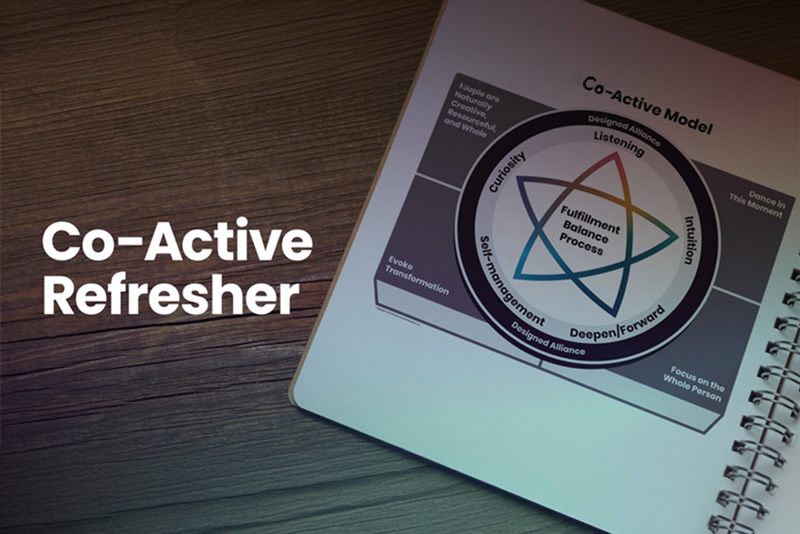Blog
Co-Active Training Institute Blog
The Co-Active Training Institute blog will help you understand the profound experiences and benefits of training with the worldwide leader in coach training.
Most recent blogs

Innovation & Impact
Coaching Setting: How to Create An Environment for Client Growth

Innovation & Impact
The Role of a Master Coach and How to Become One

Systems & Structure
What is Co-Coaching And How Does it Work? A Simple Guide for Coaches

Innovation & Impact
How to Develop Your Coaching Management Style: Expert Guide

Innovation & Impact
A Coaching Pitch That Feels Natural and Inspires New Clients

Innovation & Impact
How to Write a Compelling Coaching Bio That Attracts Clients

Systems & Structure
Guide to Setting Transformational Coaching Goals With Clients

Systems & Structure
How To Create Coaching Content That Attracts Ideal Clients

Innovation & Impact
Co-Active Coaching Technique: The Power of Designed Alliances

Systems & Structure
The 20 Best Coaching Books Aspiring Coaches Must Read

Systems & Structure
Structuring a Team Coaching Program That Drives Results

Innovation & Impact
How to Build a Coaching Brand That Clients Can Trust
All Blogs
All Blogs
Responsibility
Innovation & Impact
Systems & Structure
All Blogs
Responsibility
Innovation & Impact
Systems & Structure
What People Say About Co-Active Training Institute

★★★★★
“The Co-Active Leadership Experience is a transformative program for anyone. We are all leaders, whether we are conscious of that or not. Each of us is having an impact on ourselves, each other, and the planet. This course teaches us awareness, ownership, AND a model that empowers us to make a difference.”
Darla Beam
★★★★★
“The Co-Active Leadership Experience is a transformative program for anyone. We are all leaders, whether we are conscious of that or not. Each of us is having an impact on ourselves, each other, and the planet. This course teaches us awareness, ownership, AND a model that empowers us to make a difference.”

Darla Beam

★★★★★
“The Co-Active Training Program has revolutionized how our teams operate and lead. The impact of the training has been profound, producing both clear financial ROI and a huge amount of deep-felt benefits.”
Leader at Lululemon
★★★★★
“The Co-Active Training Program has revolutionized how our teams operate and lead. The impact of the training has been profound, producing both clear financial ROI and a huge amount of deep-felt benefits.”

Leader at Lululemon

★★★★★
“What’s so extraordinary about the program is that it lifts you right out of your expected ways of doing things and lets you effectively be a different person. What got me here was this experiential program, where I was calling upon all parts of my soul — the values, the spiritual, the intellectual, the emotional.”
Celeste Schenck
President, American University of Paris
★★★★★
“What’s so extraordinary about the program is that it lifts you right out of your expected ways of doing things and lets you effectively be a different person. What got me here was this experiential program, where I was calling upon all parts of my soul — the values, the spiritual, the intellectual, the emotional.”

Celeste Schenck
President, American University of Paris




































































